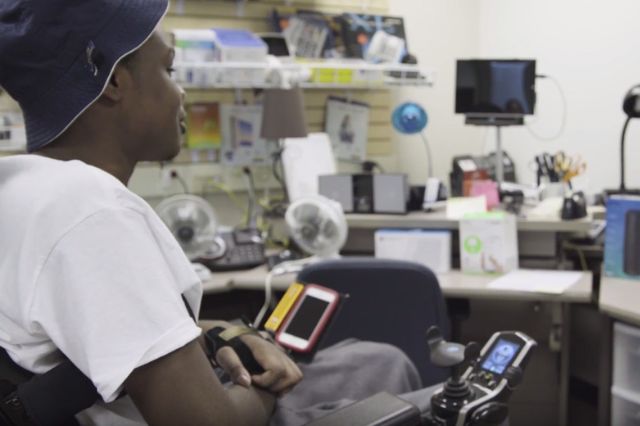Understanding Early Indicators of Multiple Sclerosis
Learn more about the early symptoms of multiple sclerosis
Medically Reviewed by Ben W. Thrower, M.D.
Multiple Sclerosis (MS) is a long-lasting autoimmune disorder predominantly affecting the central nervous system. Recognizing what the early signs of MS is critical for timely detection and intervention. While symptoms may differ from person to person, certain common indicators might suggest MS.
While MS can be challenging, with the right support and resources, individuals can lead fulfilling lives. While it’s still unclear why it’s triggered in some people and not others, advancements in MS research have been key for changing the course of treatment and management of MS.
Factors that May Contribute to Multiple Sclerosis
Many people often ask, "How do you get MS?" While the cause of MS is still unknown, scientists believe that certain genetic makeups are more predisposed to MS, and when exposed to certain environmental factors, can trigger the change in the immune system that causes MS.
Genetics
Genes play a role in MS, but they are only part of the story. While there’s no single gene that will cause someone to develop MS, having certain genes can make a person more susceptible.
Environments
Your environment may play a role in your risk for developing MS. For example, locations farther from the equator have higher rates of MS, possibly due to less intense sun exposure and lower vitamin D levels.
Infections and Viruses
Many latent viruses and bacteria, such as measles and Epstein-Barre virus (the virus that causes mononucleosis), may play a role in triggering MS symptoms and disease activity.
Lifestyles
Lifestyle factors, like smoking and obesity in childhood, adolescence, and early adulthood, are linked to increasing a person’s risk of developing MS.
What are the Early Signs and Symptoms of Multiple Sclerosis?
The initial signs of MS can often be subtle and easily overlooked. What are usually the first signs of MS? Common early symptoms include fatigue, numbness or tingling in limbs, muscle weakness, and coordination and balance issues. These symptoms can be intermittent, further complicating their identification.
MS symptoms are unpredictable and can change or fluctuate over time. Symptoms may last for a short time or only occur during a relapse, and some people may not have any symptoms. Symptoms can also interact with each other and other co-occurring conditions or diagnoses.
Common Early Indicators of Multiple Sclerosis Symptoms
The most common MS symptoms tend to indicate early signs of MS and can occur alone or in combination with other symptoms such as:
- Fatigue
- Heat intolerance
- Sensory dysfunction (such as numbness, stiffness, dizziness, or vertigo)
- Pain
- Motor dysfunction (such as muscle weakness, muscle spasticity, or impaired motor control)
- Bladder dysfunction
- Bowel dysfunction
- Vision (such as blurred vision, poor contrast, pain, optic neuritis, or other impairments)
- Sexual dysfunction
- Cognition (such as problems processing information, learning new information, problem-solving, focusing, or understanding the environment)
- Mood (such as depression, mood swings, anxiety, laughter, crying, or irritability)
Lesser Common Early Signs of MS
- Speech disorders include slurring and dysphonia
- Swallowing problems or dysphagia
- Hearing loss
- Seizures
- Tremors
- Breathing problems
Managing MS Symptoms
Living with multiple sclerosis (MS) can be challenging, but a variety of strategies and treatments are available to effectively manage its symptoms. Understanding the early signs of MS and taking appropriate measures can improve quality of life and maintain independence.
While there is currently no cure for MS, several medications and therapies can help manage symptoms, slow the progression of the disease, and reduce the severity and frequency of relapses. In addition to medical treatments, lifestyle changes like regular exercise, a healthy diet, and adequate rest can reduce fatigue, improve strength and flexibility, and enhance overall well-being.
Supportive therapies such as physical therapy, occupational therapy, and speech therapy can provide valuable assistance to individuals with MS. These therapies aim to improve mobility, enhance daily living skills, and address any speech or communication difficulties. Additionally, counseling and support groups can offer emotional support and guidance, helping individuals and their loved ones cope with the challenges associated with MS.
When Should I See a Healthcare Professional for my MS Symptoms?
If you are experiencing early MS symptoms that are out of the ordinary and last for more than 24 hours, make an appointment to see your doctor or specialized MS care team for investigation and diagnosis. Early diagnosis and treatment can help manage symptoms, slow disease progression, and enhance overall quality of life.
The MS care team at Shepherd Center has exceptional knowledge and experience treating patients with MS, so we understand how to differentiate the disease from similar conditions. We offer second opinions to confirm your initial diagnosis. We also offer continuation of treatment or adjustments to your medical care plan once you are diagnosed.
The Andrew C. Carlos Multiple Sclerosis Institute at Shepherd Center
Contact Us
Our Address
2020 Peachtree Road NW
Atlanta, GA 30309-1465
Clinic, Rehabilitation, and Wellness Hours
Monday to Friday
8:00 a.m. – 4:00 p.m. ET




